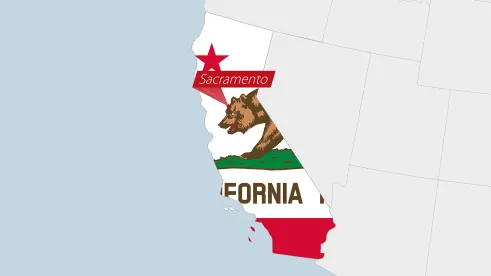This fall, California Governor Gavin Newsom signed Assembly Bill No. 2673 (the Bill), which amends various sections of the California Health and Safety Code relating to hospice agencies. Among other things, the Bill prohibits hospice agency license transfers; adds requirements for hospice agency license applicants; increases oversight authority by the California State Department of Public Health (the Department); and updates the moratorium on new hospice agency licenses.
I. Prohibition of Hospice Agency License Transfers
First, the Bill provides that hospice agency licenses are not transferable and mandates that the Department shall not approve a change of ownership of a hospice agency license within five years of the date a license was initially issued to the licensee. Only the individual or entity that was issued a license for the purposes of operating a hospice agency is entitled to use the license during the five-year period. Certain exceptions to these rules may be granted by the Department for extenuating circumstances, such as a need to ensure the continuity of care for patients or the existence of a financial hardship, combined with an unmet need of hospice services in the geographic area the hospice agency would service.
II. Heightened Requirements for Hospice Agency License Applicants
The Bill also revises and expands the requirements for applicants seeking to qualify for a hospice agency license. Some of these new application requirements are:
-
An applicant must have specified personnel, including: an administrator; administrator designee; director of patient care services; director of patient care services designee; and medical director or contracted medical director;
-
The applicant must submit to the Department various information for each of the above-listed individuals, including: an HS 215A form or its successor form; a résumé; a list of all hospice agencies the individual is currently serving; and information on whether its medical director (or contracted medical director) is certified as a hospice medical director;
-
The hospice agency must notify the Department of any change in the personnel serving in the roles of administrator, administrator designee, director of patient care services, director of patient care services designee, or medical director or contracted medical director by submitting the updated information within 10 business days of the change; and
-
An applicant who has not previously qualified for a hospice agency license must demonstrate and provide evidence of an unmet need of hospice services in the geographic region the hospice would serve, unless an exception applies.
III. Increased Oversight Authority by the Department
The Bill grants the Department increased oversight authority and also imposes various requirements on the Department. The power of the Department is expanded, as the Bill adds to the reasons for denial, suspension, or revocation of a license to include improperly certifying a patient as eligible for hospice care and demonstrating a pattern and practice of violations of state or federal standards during the last three years of a hospice agency owned, operated, or managed by the applicant or licensee.
The Bill also requires the Department to conduct annual surveys of 5 percent of initial hospice agency licenses approved during the previous calendar year to ensure that the accreditation requirements are met. The Department also has the authority to survey an accredited hospice agency that is not included as part of the required surveys. The Bill further establishes a procedure for a person to request an investigation of an accredited hospice agency by making a complaint alleging a violation of the requirements applicable to hospice agencies.
IV. Update to Moratorium on New Hospice Agency Licenses
Existing California law imposes a moratorium on the Department, preventing it from issuing a new license to provide hospice services unless an exception applies. Previously, California law required the moratorium to end on the earlier of one year from the date that the California State Auditor publishes a report on hospice licensure, or on January 1, 2027, when the moratorium provisions are repealed.
The Bill requires the Department to adopt emergency regulations by January 1, 2024. The Department is required to maintain the general moratorium on new hospice agency licenses until the Department adopts these emergency regulations. Now, the moratorium must end on the earlier of two years from the date the California State Auditor publishes a report on hospice agency licensure, or the date the emergency regulations are adopted. The regulations to be promulgated by the Department must: establish guidelines for assessing the appropriateness of a hospice agency’s ratio of patients to nurses; require hospice agency management personnel to meet minimum standards of training and experience; and establish timelines for reporting changes to application information.
The signing of this Bill continues California’s trend of increasing Department oversight on hospice agencies and demonstrates the continued need to focus on compliance with these evolving laws and regulations.




 />i
/>i

